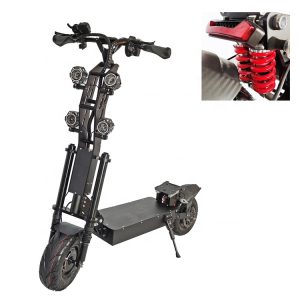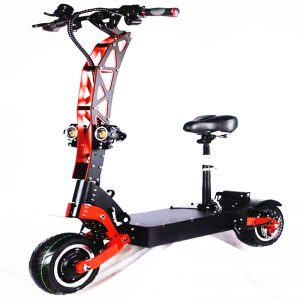In recent years, electric scooters (e-scooters) have gained immense popularity as a convenient and eco-friendly mode of transportation. However, the legal status of e-scooters in the UK has been a topic of confusion and debate. In this article, we will delve into the regulations surrounding e-scooters in the UK and provide clarity on their legal usage.
1. Definition of E-Scooters:
Before discussing the legal status of e-scooters in the UK, it is essential to define what constitutes an e-scooter. An e-scooter is a motorized vehicle that is powered by an electric motor and is designed for personal transportation. They typically have two or more wheels and are operated by a throttle or handlebar.
2. Current Legal Framework:
As of now, e-scooters are not explicitly legalized under UK law. However, they are not entirely banned either. The current legal framework regarding e-scooters is ambiguous, which has led to a grey area in their usage. While some local authorities have allowed e-scooters on their roads, others have imposed restrictions or banned them altogether.
3. Licensing and Registration:
In the UK, e-scooters are not required to be licensed or registered like traditional vehicles. However, this may change in the future as the government reviews the current regulations. It is important to note that riding an unlicensed or unregistered e-scooter may result in legal consequences.
4. Speed Limits:
The government has not set a universal speed limit for e-scooters in the UK. However, some local authorities have imposed their own speed limits. It is crucial to familiarize yourself with the speed restrictions in your area to avoid violating the law. Riding an e-scooter at excessive speeds can pose a risk to both the rider and others on the road.
5. Helmet Usage:
While there is no legal requirement for e-scooter riders to wear helmets in the UK, it is highly recommended for safety reasons. Wearing a helmet can significantly reduce the risk of head injuries in the event of an accident. It is advisable to always prioritize safety and wear a helmet when riding an e-scooter.
6. Age Restrictions:
The UK government has not established a specific age restriction for riding e-scooters. However, some local authorities have implemented their own age limits. It is essential to check the regulations in your area to determine if there are any age restrictions applicable to e-scooter riders.
7. Use of E-Scooters on Public Roads:
The legal status of using e-scooters on public roads varies across the UK. While some local authorities have allowed their usage, others have imposed restrictions or banned them. It is crucial to research and understand the specific regulations in your area before using an e-scooter on public roads.
8. Future Outlook:
The UK government is currently reviewing the regulations regarding e-scooters. The Department for Transport (DfT) has launched a consultation to gather public opinion and evaluate the need for a comprehensive legal framework for e-scooters. The outcome of this review will likely determine the future legal status of e-scooters in the UK.
The legal status of e-scooters in the UK is currently ambiguous, with regulations varying across different local authorities. While e-scooters are not explicitly legalized under UK law, they are not entirely banned either. It is crucial for e-scooter riders to familiarize themselves with the specific regulations in their area, including licensing, registration, speed limits, helmet usage, and age restrictions. As the UK government reviews the current regulations, it is advisable to stay informed about any updates or changes to ensure legal and safe usage of e-scooters.




